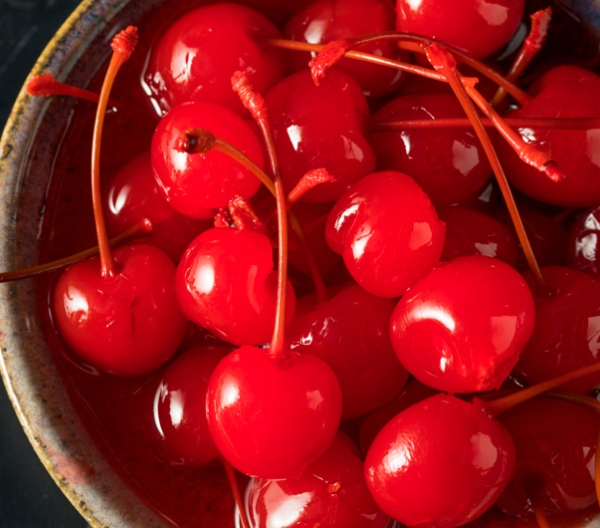Food safety, health, and nutrition news: Oct. 20, 2023

Dollar Gill - unsplash.com.
Assessing additives in school snacks, creating a healthier retail environment, (finally) banning BVO, and more in this week’s food safety, health, and nutrition news roundup.
Food safety, health, and nutrition news you may have missed
This week, CSPI released our 2023 Competitive Foods in Schools Report. This report builds on the 2021 School Meals Corporate Report Card and assesses the nutritional quality of Smart Snacks—the single-serve, individually packaged foods and beverages that qualify to be sold as competitive foods in K–12 schools. Our survey of 623 individually packaged USDA-approved Smart Snacks shows that almost half of foods available to students are too high in added sugars, use artificial sweeteners CSPI rates “Avoid,” and contain many synthetic food dyes. One beverage—grape-flavored Gatorade G2—contains added sugars, plus two non-nutritive sweeteners and two synthetic coloring agents. The snack item with the most added sugars per serving? Sweetened dried cranberries, with 21 g per 1.16 oz. Aligning the standards for Smart Snacks with the Dietary Guidelines for Americans would ensure that healthy choices are easy for students to make.
Read more at CSPI: 'Smart Snacks' in schools should meet federal Dietary Guidelines
All shoppers face barriers to purchasing nutritious food in a retail environment that disproportionately promotes unhealthy food products. However, retail marketing has an even greater impact on shoppers who use SNAP. This week, CSPI released its Recommendations to Promote Healthy Retail Food Environments: Key Federal Policy Opportunities for the Farm Bill. To improve the healthfulness of the retail environment, the report recommends 10 policy changes across six categories: SNAP-authorized retailer requirements; research pilots, grant programs, nutrition education, voluntary rules, and recognition programs.
Read more at CSPI:
Farm Bill an opportunity to promote healthier retail environment
Executive summary: Recommendations to Promote Healthy Retail Food Environments
Last week, Gov. Gavin Newsom signed the California Food Safety Act, AB 418, into law. Beginning in 2027, food products containing four food harmful additives—Red No. 3, propylparaben, potassium bromate, and brominated vegetable oil—can no longer be legally sold in the state. The last on the list, also called BVO, is the subject of a new proposed rule from the FDA, which would ban brominated vegetable oil from use in foods and beverages. Through decades of increasing pressure, the agency had not acted toward a ban until this week. Meanwhile, manufacturers facing public pressure, including Coca-Cola and Pepsi, voluntarily removed it from their products more than a decade ago. So, why now? Thomas Galligan, CSPI’s principal scientist for food additives and supplements, called the belated effort an “indictment of the FDA,” which has been aware of BVO’s potential harmful effects since 1969.
Read more about the California Food Safety Act at Food Politics: California’s new food additive law: groundbreaking!
Read more about BVO at STAT: A 50-year battle over one additive highlights FDA’s challenges with food safety
We could all use some inspiration to make exercise a habit...and some advice about how to make our efforts count. Here’s the latest on core training, incline walking, healing an injury, whether to time your protein intake, and fitness trackers.
Read more at NutritionAction: 5 exercise questions to get the most out of your workouts
Thanks to The Healthy Cook Kate Sherwood, the CSPI test kitchen is among the cheeriest places on Earth—and you can give a gift that makes your loved ones’ home kitchens just as bright and nourishing. Here’s our 2023 cookbook gift guide, featuring something for everyone on your list—just in time for holiday shopping season.
Read more at CSPI: Holiday gift guide 2023: A cookbook for anyone on your list
We’re hiring! CSPI helped lead the effort for passage of the Healthy, Hunger-Free Kids Act of 2010, a landmark law that got soda and most junk food out of schools and ensures that school meals provide more fruits, vegetables, and whole grains, and less salt and saturated fat. Since then, we have been working to defend science-based school nutrition requirements, ensure schools have the tools they need to provide healthy, delicious meals, and ensure school meal standards remain aligned with the most up-to-date expert recommendations. Now, we are accepting applications for two Policy Associate positions to join the Child Nutrition Programs.
Learn more: CSPI Job Opportunities

Stirring the Pot
Join the fight for safer, healthier food
Sign up to receive action alerts and opportunities to support our work in Stirring the Pot, our monthly newsletter roundup.

